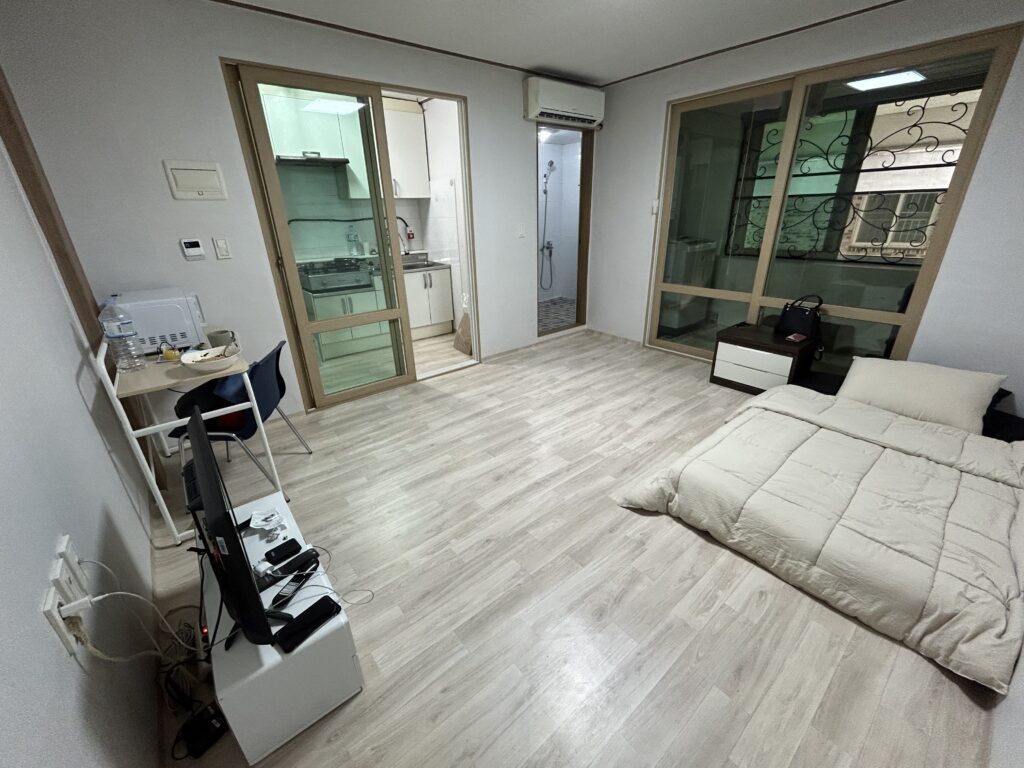There are many articles, blogs and websites online that talk about teaching ESL. Not many of these give a South African perspective. This article will discuss; the benefits of teaching English in South Korea, the hagwon option to teach in South Korea and the requirements for South Africans to teach English in South Korea.
Many South Africans are leaving the country to teach English in South Korea each year. One big contributor is the unemployment rate in South Africa and the attractive benefits that South Korean schools provide to foreign English teachers.
BENEFITS OF BEING AN ESL TEACHER
These are a few benefits that come with teaching English in South Korea.
Flight purchase or reimbursement
The selling point for most people besides the other benefits mentioned below, is that the school you eventually decide to go with will cover your flights from South Africa to South Korea. In most cases, you have to book and pay for your flights, then the school reimburses you once you arrive in South Korea. In often rare cases, your school may pay for your flight before you leave South Africa.
Salary
The salary for teaching in South Korea starts from 2 200 000KRW (This is roughly R31 000). Your salary could be higher than this depending on different factors like, but not limited to; you having teaching experience (not necessarily online teaching), being a qualified teacher by profession or having a TESOL/CELTA certificate. This then means you could negotiate a higher than basic salary.
That is often from 2 300 000 KRW upwards. Keep in mind that negotiating a higher salary with no teaching experience or professional teaching certificate can impact your chances of securing a school. Another factor that can affect the salary variation is the location of the school (rural, or urban). Urban cities like Seoul and Busan tend to have a higher cost of living and therefore come with a relatively higher starting salary than a salary of someone teaching in a small town or a rural town.
Free single apartments.

Your school will provide you with a furnished single apartment. The furnishings include a single bed, a TV and a stand, a washing machine, a table and a chair. The kitchen comes with a stove and fridge. The furniture also depends on your school. Some provide closet space and others don’t. These are things you would have to ask your school once you decide to sign with them. Essentially, all you would need to get yourself is bedding and crockery.
Medical aid
The school covers half of your medical insurance fees, and the other half is deducted from your salary. My school deducts 74 440 KRW (around R1000) from my salary currently. This deduction may not be standard across all schools, and it could vary.
Waking distance
Depending on the route you take in terms of Epik or Hagwon, some schools are not more than a 10-minute walk. This means you do not need to pay for transport to go to work, you can walk. Some Epik teachers take a bus to work. Transport fees are added on top of their basic salary(Epik teachers only). Public transport is very affordable and reliable in South Korea. If you teach at a hagwon that so happens to be more than a 10-minute walking distance from your apartment (which is not likely), you will easily manage with a bus or a cab (Kakao Taxi).
TWO DIFFERENT ROUTES TO TEACHING ENGLISH IN SOUTH KOREA
There are two different routes South Africans can take towards being English teachers in South Korea. There is the Epik program route and the Hagwon route. The Epik program stands for – English Program in Korea. The Epik program is run by the government of South Korea. This section focuses more on the Hagwon route as the Epik route has a more in-depth website for you to consider.
The hagwon route means teaching English at English academies. There are different types of hagwons that South Africans teach at. There are kindergarten hagwons. This means you teach English to children between the ages of 5 – 7years old. Kindergarten hagwons also have elementary after-school programs where you teach elementary students after their public schooling. That is usually in the afternoon from 2 pm – 8 pm.
There are after-school hagwons where you teach elementary to high school students only. English teachers at these types of hagwons usually teach English from 2 pm – 10 pm. These are students who start their day at public schools and go to hagwons after school. Hence why it is referred to as afterschool hagwons.
Then there are international and Christian schools that teach various subjects including English. The age groups in these types of schools are different. It can be a combination of the two types of hagwon or either one.
REQUIREMENTS FOR SOUTH AFRICANS TO TEACH ENGLISH IN SOUTH KOREA
- Be a citizen of one of these English-speaking countries; South Africa, America, UK, Australia, New Zealand, Canada, and Ireland (If you do not come from one of these countries, you cannot teach English in South Korea).
- South African Passport
- Apostille Police Clearance Certificate (PCC)
- Apostille bachelor’s degree from an accredited university (No diplomas are accepted. You can only apply if you have a Postgraduate Diploma and above.)
- TEFL/TESOL/CELTA certificate
- Clear medical exam (Health and drug test)
If you have TB, you will not be granted a teaching visa. X-rays of your chest will be taken to confirm. If you test positive for drugs you will not get a teaching visa as well.
A more detailed article explaining how and where in South Africa you can obtain all the required documents will be available soon.
You need to do as much research as possible before deciding to teach English in South Korea. This blog will have other helpful articles that will guide you through the journey of applying to be an English teacher in South Korea. You will also find resources on all things ESL in South Korea as well. Check out some of our other articles here.
